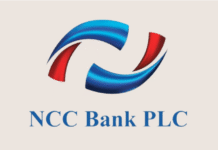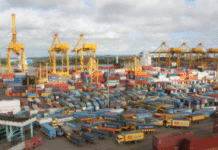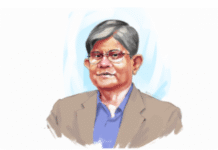Exports to India are not picking up despite a host of positive initiatives by both the countries.
“We are struggling to cross the $1 billion-mark on export to India although India is one of the high potential markets for Bangladesh,” said Abdul Matlub Ahmad, former president of the Federation of Bangladesh Chambers of Commerce and Industry.
In fiscal 2016-17, Bangladesh’s exports to India stood at $672.40 million, according to data from the Export Promotion Bureau.
Bangladesh will now endeavour to hit the milestone within the next two to three years, he said.
The exports have not been increasing mainly for two reasons — a lack of diversity in Bangladeshi goods and non-tariff barriers in India, according to Ahmad, also a former president of the India-Bangladesh Chamber of Commerce and Industry.

Goods cannot enter freely into the Indian market from Bangladesh for having non-tariff barriers like mandatory testing and poor banking system along the bordering areas.
On the other hand, Bangladesh has very few products in its export basket, he said.
“Only garment products, jute and jute goods are exported to India from Bangladesh.”
Subsequently, he urged the government to launch strong lobbying efforts with the Indian government for removing the anti-dumping duty of $19-$352 a tonne imposed on January 5 this year on jute and jute good exports.
Although India allows duty-free access to all Bangladeshi items save for some alcoholic beverages, the Indian government imposed a countervailing duty of 12.50 percent on the import of Bangladeshi apparel items. As a result, Bangladesh’s garment exports to India are not increasing.
The Indian market can be a good export destination for Bangladeshi garment makers for its rising middle-class population, Ahmad added.
Last fiscal year, garment shipments to India, a market of more than $40 billion, fetched $129.81 million, down 4.85 percent year-on-year.
“We will again raise the issue of non-tariff barriers in a meeting on Tuesday with the visiting Indian Finance Minister Arun Jaitley,” said FBCCI President Shafiul Islam Mohiuddin.
Mohiuddin said they will also raise the issue of testing certification. Currently, the Bangladesh Standards and Testing Institution certificate for 21 food products is recognised by India.
Recently, Bangladesh proposed to India to accept the BSTI certification for 14 other products like frozen food, potato crackers, candy, milk powder, white bread, dry cake, drinking water, flavoured drinks, canned juices, soap, cement, mild-steel rod, GI pipes and textile items. The balance of trade between the two countries is heavily tilted towards India because Bangladesh imports some basic products like cotton, cereal, vehicles, chemicals and pharmaceuticals from the neighbouring country.“We want to invest in India. We also sent teams to visit some places in Kolkata and Gujarat recently to assess the investment potential in India,” Mohiuddin added.
A total of 29 business delegations from India are scheduled to hold meetings with the Bangladeshi businessmen at the capital’s Sonargaon Hotel today, said Hussain Jamil, secretary to the FBCCI. Pankaj R Patel, president of the Federation of Indian Chambers of Commerce, will lead the Indian business delegation in the presence of Jaitley and Commerce Minister Tofail Ahmed in the meeting.
Mohiuddin will lead the Bangladeshi businessmen in the meeting. Bangladesh imports goods worth more than $6 billion from India in a year through the formal channel, about $2 billion of which is cotton.
More than 50 percent of Bangladesh’s cotton requirement in a year is met by imports from India. It is believed that India exports goods worth more than $5 billion to Bangladesh a year through informal channels.
Indian companies such as Marico, CEAT, Tata Motors, Godrej, Sun Pharma, Asian Paints have made substantial investments in Bangladesh.
Source: The Daily Star









